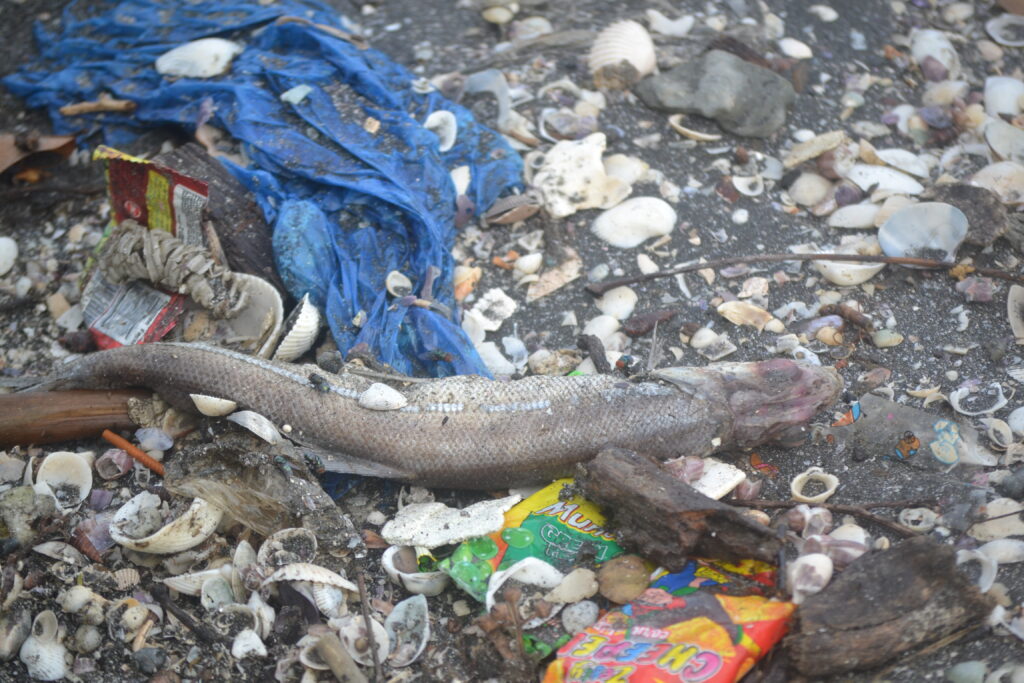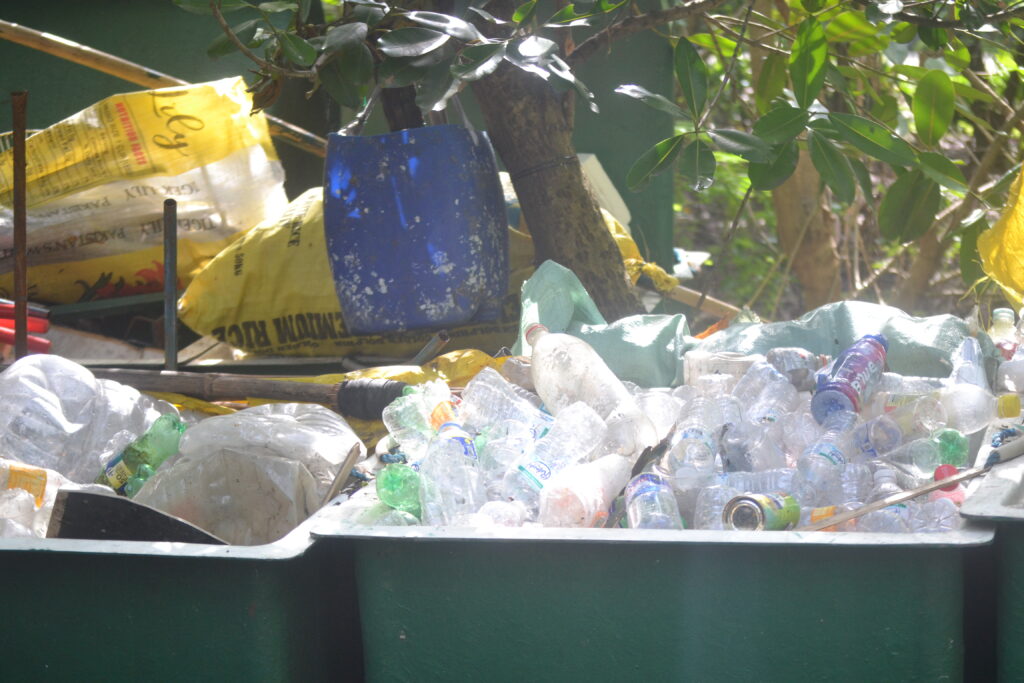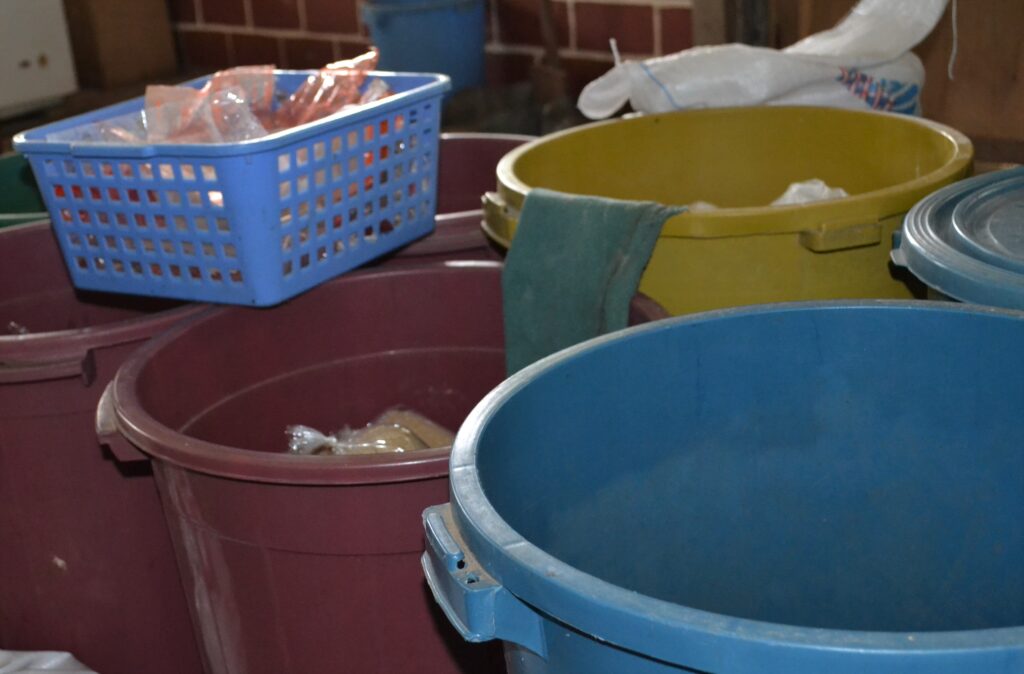Text and Photos by Henrylito D. Tacio
When a novel coronavirus was first reported in Wuhan, China, the world was watching attentively, not knowing that once it has scattered throughout the world, it would become a pandemic.
In March last year, coronavirus disease 2019 (COVID-19) – as the World Health Organization (WHO) called it – came into the Philippines. Since then, SARS-CoV-2 – the name of the virus – “conquered” most areas of the world.
People were infected, and some of them even died. All over the world, the economy plunged. People were staying at home; they were afraid of being infected. Lockdowns were implemented; quarantine and isolation became the words of the day.
Everything about COVID-19 is terrible news. But there’s one good thing about the pandemic: it has made global plastic production to decline. For the first time since 2008, plastics production all over the world decreased, according to Agence France-Presse (AFP) news report.
Actually, this was not the first time it happened. In fact, it is the third time since World War II that output has fallen, the industry federation PlasticsEurope reported. Previously, “output fell during the oil crisis in 1973 and during the financial crisis in 2008.”
Due to “the impact of COVID-19 on the global economy,” global output slipped to 367 million tons in 2020 from 368 million in 2019. That’s a 0.3% decline, PlasticsEurope noted.
This is indeed good news. “Plastics are a clear and present danger to the future of our planet,” says Céline Cousteau, TreadRight Ambassador.

Dead fish and plastics 
Recyclable plastics
Since they were introduced in the 1970s, plastic bags have infiltrated the lives of human beings. “Globally, we carry home between 500 billion and a trillion every year – about 150 bags for every person on earth, or to put it another way, a million every minute and rising,” wrote Caroline Williams in New Scientist.
In the Philippines, the so-called “sachet economy” has contributed to the proliferation of plastics. Products sold in single-use sachets include instant coffee, shampoo, soy sauce, cooking oil, food seasoning, and toothpaste. Name it, and there’s a sachet for it!
“Because they are easy to sell – ribbons of single-use products hang from neighbourhood stores even in the most remote communities – large multinational manufacturing companies continue to market them,” the World Wide Fund for Nature (WWF) observes.
According to one research group, the Philippines discards 60 billion plastic sachets each year. That’s about one sachet per person per day on a per capita basis.
“The problem with plastics has been escalating for decades, and the Philippines has been identified as the world’s third largest contributor of plastics in the ocean,” WWF said. “Plastic pollution has always been a huge issue in the Philippines with the continuous generation of plastic wastes and poor waste management.”
About 35,800 tons of garbage, which include plastics, are generated each day by Filipinos, according to a position paper written by Alicia Castillo and Suchiro Otoma. “On average, each person in the country produces about 0.5 kilogram and 0.3 kilogram of garbage every day in the urban and rural areas, respectively.”
Another report – from the National Solid Waste Management Commission and the World Bank – said 2.27 million tons of garbage are collected every year out of the 2.7 million tons produced. “Of this, 386,000 tons are still leaked into the ocean,” the report said.
“An absence of garbage collection services in secondary cities and many of the country’s smaller islands is largely to blame for the overwhelming amount of plastic coming from the country,” Froilan Grate, executive director of the Philippine branch of the Global Alliance for Incinerator Alternatives, was quoted as saying by South China Morning Post.
A news report said single-use plastics for food and cosmetics are one of the main contributors to plastic waste in landfills and in oceans. Around 40% of all plastic that is produced is used for packaging, and the World Economic Forum estimates that 95% of this is not recycled after its initial use.
That’s horrendous, indeed. “Following the trajectory of plastic production and mismanagement, United Nations reports predicted that by 2050, there will be more plastic in the oceans than there are fish,” Environment Secretary Roy E. Cimatu said in a press statement.
In the award-winning 1967 movie, The Graduate, the character portrayed by newcomer Dustin Hoffman (who received a well-deserved Oscar nomination for Best Actor) asked for some advice on career direction. “Plastics, my boy. Plastics,” he was told.

Recyclable plastics 
Plastic pails
Businesses all over the world are heeding the advice. Unknowingly, no one knew at the time the other side of plastics, which are non-biodegradable. As a matter of fact, plastics are materials made to last forever.
“Disposed plastic materials can remain in the environment for up to 2,000 years and longer,” wrote Barry E. DiGregorio in an article.
Plastics “is in our air, our water, our food, our excrement,” Nina Butler, the chief executive officer of More Recycling, a research and consulting company that works with the plastic industry on recycling, was quoted as saying by the media. “It’s very, very pervasive.”
Jonas Leones, a DENR undersecretary for policy, planning, and international affairs, said the effects of plastics can be devastating for marine biodiversity. “Small litters like candy wrappers end up in our oceans,” he said. “It is eaten by marine species, clogging their stomachs and causing their death.”
Plastics are also hazardous to human health. Two broad classes of plastic-related chemicals are of critical concern for human health: bisphenol-A and additives used to synthesize plastics, which are known as phthalates.
Exposure to these two chemicals, said a study conducted by the Arizona State University Biodesign Institute, is linked to cancer, birth defects, impaired immunity, endocrine disruption, and other ailments.
The blatant use of plastics has to stop – now! “It is high time we refrain from using disposable plastic products that are used in minutes, but persist in the environment forever,” Cimatu stressed.

